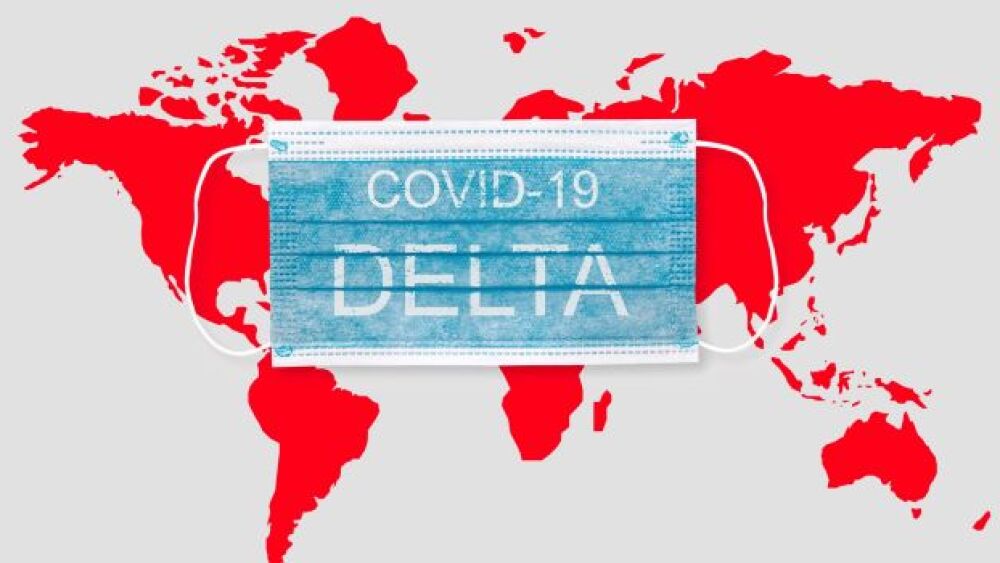Brazilian researchers develop first biosimilar in Latin America Drug produced by Eurofarma will be used in patients on chemotherapy Researchers of Eurofarma have developed the first biosimilar drug in Latin America for use in patients with the immune system impaired by a bone marrow transplant or chemotherapy. This is the Fiprima (filgrastim), biotechnology used to induce the increase of the defense cells of the body, more specifically neutrophils in patients with some types of cancer, such as breast cancer and leukemia. Fiprima restores immunity and prevents the onset of opportunistic infectious diseases, which may be quite severe in an immunocompromised situation.
For Vanda Magalhães, Biotechnology manager of Eurofarma and responsible for developing Fiprima, this step is a major milestone for the national pharmaceutical industry, as it is the first time a Brazilian company develops a biosimilar using domestic technology. "We started the project in 2006. We developed and executed all phases of the procedure, from the construction of clone, process development to analytical methodology," she says. "Just to have an idea of the importance of this advance, there are only 20 biosimilar drugs in the world, one in the United States and other 19 throughout Europe, with the first one being approved in 2006," adds the expert.
Biotechnological drugs began to be produced and commercialized in the 1980s. Because they are a result of a protein produced by a living being, the development of such products is quite complex and needs quite different processes and technologies as those used for the development of a synthetic product, which is based on chemical processes, which makes biotech drug production longer and demands more investment to be developed.
During the nine years of research and development, Eurofarma has invested over R$ 25 million in Fiprima. "The change in DNA of a living organism, through genetic engineering techniques, allows introducing cells of bacteria or yeasts, for example, a gene that allows this cell to produce a protein that it does not naturally produce", says Vanda.
Currently, biological products consume about 51% of the Ministry of Health costs, but because of its high added value, it represents only 4% of the drugs provided by the government to the population. This scenario represents in an emblematic way the importance of biological projects for Eurofarma. In addition to being strategic products, an aging population should cause an increase in diseases such as cancer and Alzheimer, among others. And the use of biological drugs is a global trend to combat these diseases. "This project required the development and uptake of people in the Brazilian market with very specific knowledge and, until then, was limited to universities. When we started in the industrial scaling, this has become even more challenging.
After nine years of work, the whole team was rewarded with the publication of the first biosimilar of national production. This achievement reinforces the innovative and pioneering vocation of Eurofarma," says Martha Penna, Vice Chairwoman of Innovation of the company. Fiprima was approved by ANVISA last October 20th. Prior to approval, the drug had already been assessed as highly similar to the comparator product, manufactured by Roche, an international consultancy, according to FDA guidelines, regulatory agency of the United States.
As part of the list of drugs considered strategic for the Unified Health System (SUS), PDP (Partnership for Productive Development) was the mechanism found by the government to promote the nationalization of the product, competitiveness and self-sufficiency. In this model, Eurofarma has a formal agreement and a partnership in progress with Biomanguinhos Institute to ensure the supply to the public market and the transfer of knowledge and technology. The document is expected to produce 360,000 annual doses and the drug should be available for the Brazilian population in the first quarter of 2016.
Eurofarma also attends the private market, which according to IMS Health audit corresponds to 60% of the total market. "We are able to serve both markets and are creating a block dedicated to the development and production of biotech drugs in the industrial complex of Itapevi, also located in the state of São Paulo," concluded Martha. About Eurofarma
The Eurofarma Group is the first Brazilian multinational pharmaceutical company with 100% of national capital and 43 years of existence, recognized by the medical community and society for promoting access to health and quality of life with treatments at the right price, quality and innovation.
Recognized in Brazil and abroad, the company is positioned prominently in the market to operate in the fields of Medical Prescription, OTC, Generics, Hospital, Procurement, Oncology, Third-Party Services and Veterinary. With a portfolio of over 200 products and 200 million units sold only in Brazil, it is already present in 15 countries: Argentina, Belize, Bolivia, Chile, Colombia, Costa Rica, El Salvador, Guatemala, Honduras, Nicaragua, Panama, Peru, Dominican Republic and Uruguay. Considered one of the best companies to work according to GPTW,
Eurofarma has more than 6,200 employees, and 2,500 representatives, the largest medical sales force in the country. With an average growth of 18% over the last 12 years, it reached in 2014 R$ 2.6 billion in revenues and invests 6% of net sales in Research & Development.
For Vanda Magalhães, Biotechnology manager of Eurofarma and responsible for developing Fiprima, this step is a major milestone for the national pharmaceutical industry, as it is the first time a Brazilian company develops a biosimilar using domestic technology. "We started the project in 2006. We developed and executed all phases of the procedure, from the construction of clone, process development to analytical methodology," she says. "Just to have an idea of the importance of this advance, there are only 20 biosimilar drugs in the world, one in the United States and other 19 throughout Europe, with the first one being approved in 2006," adds the expert.
Biotechnological drugs began to be produced and commercialized in the 1980s. Because they are a result of a protein produced by a living being, the development of such products is quite complex and needs quite different processes and technologies as those used for the development of a synthetic product, which is based on chemical processes, which makes biotech drug production longer and demands more investment to be developed.
During the nine years of research and development, Eurofarma has invested over R$ 25 million in Fiprima. "The change in DNA of a living organism, through genetic engineering techniques, allows introducing cells of bacteria or yeasts, for example, a gene that allows this cell to produce a protein that it does not naturally produce", says Vanda.
Currently, biological products consume about 51% of the Ministry of Health costs, but because of its high added value, it represents only 4% of the drugs provided by the government to the population. This scenario represents in an emblematic way the importance of biological projects for Eurofarma. In addition to being strategic products, an aging population should cause an increase in diseases such as cancer and Alzheimer, among others. And the use of biological drugs is a global trend to combat these diseases. "This project required the development and uptake of people in the Brazilian market with very specific knowledge and, until then, was limited to universities. When we started in the industrial scaling, this has become even more challenging.
After nine years of work, the whole team was rewarded with the publication of the first biosimilar of national production. This achievement reinforces the innovative and pioneering vocation of Eurofarma," says Martha Penna, Vice Chairwoman of Innovation of the company. Fiprima was approved by ANVISA last October 20th. Prior to approval, the drug had already been assessed as highly similar to the comparator product, manufactured by Roche, an international consultancy, according to FDA guidelines, regulatory agency of the United States.
As part of the list of drugs considered strategic for the Unified Health System (SUS), PDP (Partnership for Productive Development) was the mechanism found by the government to promote the nationalization of the product, competitiveness and self-sufficiency. In this model, Eurofarma has a formal agreement and a partnership in progress with Biomanguinhos Institute to ensure the supply to the public market and the transfer of knowledge and technology. The document is expected to produce 360,000 annual doses and the drug should be available for the Brazilian population in the first quarter of 2016.
Eurofarma also attends the private market, which according to IMS Health audit corresponds to 60% of the total market. "We are able to serve both markets and are creating a block dedicated to the development and production of biotech drugs in the industrial complex of Itapevi, also located in the state of São Paulo," concluded Martha. About Eurofarma
The Eurofarma Group is the first Brazilian multinational pharmaceutical company with 100% of national capital and 43 years of existence, recognized by the medical community and society for promoting access to health and quality of life with treatments at the right price, quality and innovation.
Recognized in Brazil and abroad, the company is positioned prominently in the market to operate in the fields of Medical Prescription, OTC, Generics, Hospital, Procurement, Oncology, Third-Party Services and Veterinary. With a portfolio of over 200 products and 200 million units sold only in Brazil, it is already present in 15 countries: Argentina, Belize, Bolivia, Chile, Colombia, Costa Rica, El Salvador, Guatemala, Honduras, Nicaragua, Panama, Peru, Dominican Republic and Uruguay. Considered one of the best companies to work according to GPTW,
Eurofarma has more than 6,200 employees, and 2,500 representatives, the largest medical sales force in the country. With an average growth of 18% over the last 12 years, it reached in 2014 R$ 2.6 billion in revenues and invests 6% of net sales in Research & Development.




